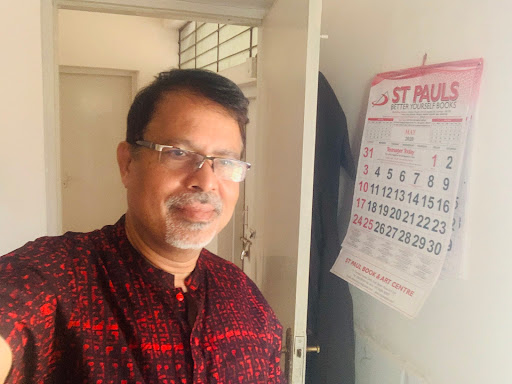What is the mysterious “Misericordina” medicine which Francis prescribed during today’s Angelus in St. Peter’s Square and what is its use?
GIANNI VALENTEVATICAN CITY
On the outside it looks just like any medicine box, with the contents clearly printed on it: 59 intracordial pellets. Inside there is a Rosary, an image of the merciful Christ with a caption that reads: “Jesus I trust in you”, plus the usual instruction leaflet that comes with medicines. This is what “Misericordina” is, the medicine kit Francis spoke about at today’s Angelus. Thousands of boxes of this “spiritual medicine” were handed out to pilgrims in St. Peter’s Square.
It is a special medicine to realize the fruits of the Year of Faith, which is drawing to a close … it is a spiritual medicine. Do not forget to take it, because it does us good: the heart, the soul, our whole life!” the Pope said.
Today’s initiative was inspired by the Rosary distributed by St. Faustina Kowalska, a Polish nun and mystic who was canonized by John Paul II in 2000. “It is a spiritual medicine called Misericordina . It is kept in a box, which some volunteers will distribute as you leave the square. Take it: it is a Rosary, with which you can pray the 'chaplet of Divine Mercy ‘, pearl of our soul and spiritual help to spread love, forgiveness and brotherhood everywhere. Do not forget to take it, because it does us good: the heart, the soul, our whole life!” The efficiency of the medicine is guaranteed by Jesus’ words.
The Pope outlined some situations in which the medicine should be taken: “When we want sinners to convert”, when “we feel we need help in taking a difficult decision,” or when we do not feel strong enough to resist temptation, when we are not able to forgive someone or “we want to ask for mercy for a dying person.”
The advice is to find “a quiet place, a room or a church,” “kneel down” before the little picture of the Merciful Jesus – painted according to Sister Faustina’s vision of him – and recite the prayers and set lines of the Rosary using the Rosary beads.
The pious practice takes about 7 minutes and if one is praying for “protection”, they should pray the Rosary at least once a day. The process applies to children and adults alike. The illustrative leaflet explains that there are no “side-effects”, that this practice is “compatible with other prayers and that approaching the sacraments “improves the efficiency of the medicine.”
Naturally, the idea of presenting Sister Faustina’s practice as a medicine comes from Poland. The “product” distributed today was produced and distributed by Widawnictwo sw Stanislawa, a publishing house based in Krakow. According to Pope Francis, the publicity received by this curious kit is a way to impress in people’s minds the importance of the medicine of mercy which the Pope has been referring to in all his speeches and homilies.
“For me, and I say this humbly, the strongest message of the Lord is mercy," Francis had said in his homily for the mass celebrated in the parish of St. Anna in the Vatican, on the first Sunday after his election as the Successor of Peter.
On that same day, after the Angelus, he made another publicity spot for mercy: “In these days, I have been able to read a book by a cardinal—Cardinal Kasper, a talented theologian, a good theologian—on mercy. And it did me such good, that book, but don't think that I'm publicizing the books of my cardinals. That is not the case! But it did me such good, so much good... Cardinal Kasper said that hearing the word mercy changes everything. It is the best thing that we can hear: it changes the world. A bit of mercy makes the world less cold and more just. We need to understand God's mercy well, this merciful Father who has such patience...”
TAKEN FROM VATICAN INSIDER

No comments:
Post a Comment